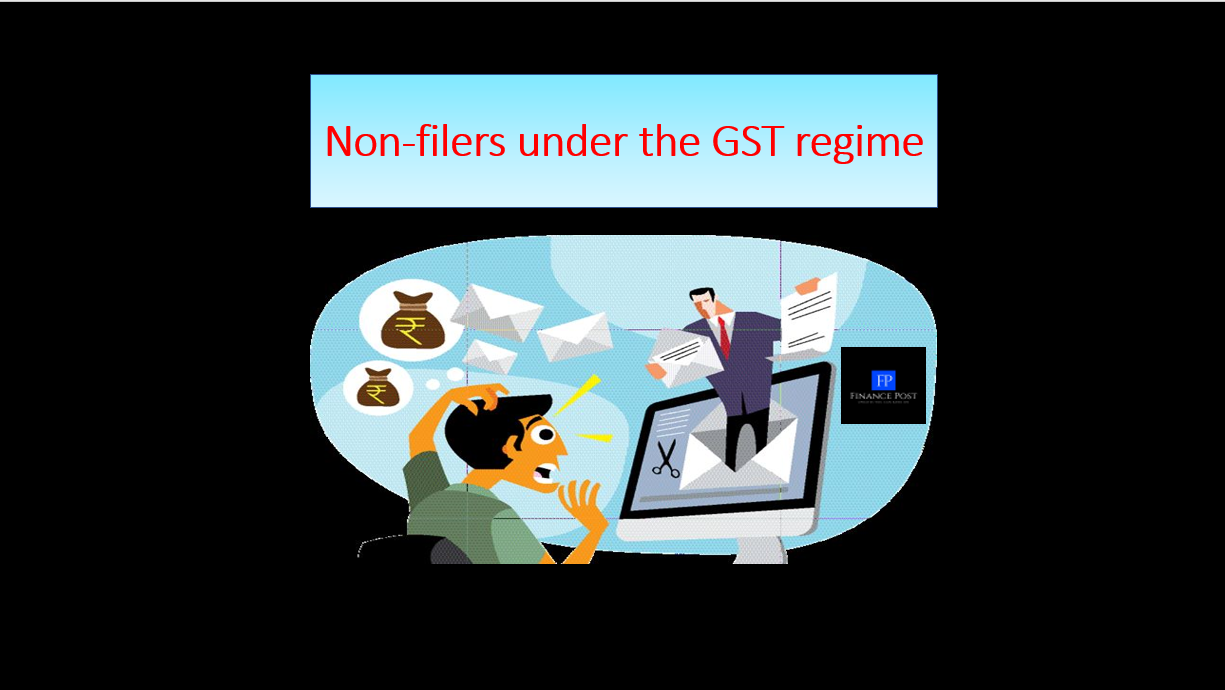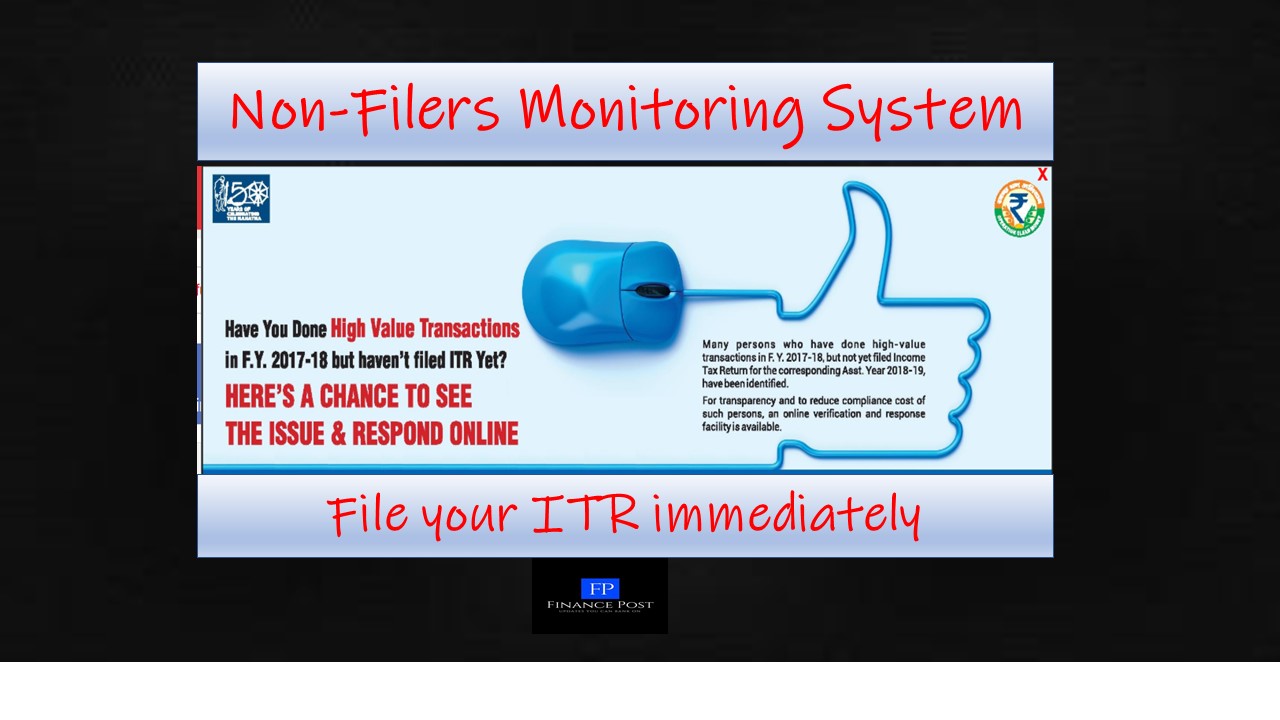
Last updated on March 17th, 2021 at 10:41 pm
Non-filers under the GST regime
Who is a non-filer as per GST?
The word or expression “non-filer” has not been defined in the GST laws.
A Non-filer is a person who is registered and is liable to file the GST return or statement periodically but has failed to do so within the due dates prescribed. A non-filer is a taxpayer who has not met his obligations of tax filing and tax payment by the due date of the returns/statements.
When is a registered person considered as a non-filer as per GST?
If a registered taxable person under GST fails to file:
- The monthly return (GSTR 3B, GSTR 1) prescribed for a person liable to pay tax.
- The quarterly return (GSTR 4) for a person opting for composition.
- The monthly return (GSTR 7) for a person deducting tax at source u/s 51.
- The monthly return (GSTR 8) for e-commerce operators collecting tax at source u/s 52.
- The monthly return (GSTR 6) in case of an Input Service Distributor.
- The annual return (GSTR 9/9A/9B/9C) prescribed to persons registered under GST.
- The final return (GSTR 10) in the case of a person who has cancelled or applied for cancellation even
after the notice u/s 46 has been served to him.
will be considered as a non-filer as per GST.
Is there a difference between a non-filer and unregistered persons?
Yes, they are different.
Non-filer under GST
Non-filer is the person who is already registered and has not complied with the provisions of return filing as per the GST laws which a registered person is liable to do.
Unregistered person under GST
- Unregistered Person – A person who is not required to apply or obtain registration or file any returns or pay any tax under GST.
- Non-compliant unregistered person – An unregistered under GST who is liable to apply and obtain registration but has failed to do so.
Can GST registration be cancelled by the GST department on the non-filing of returns?
Yes. GST registration can be cancelled on default in filing returns.
As per section 29(2)(b) of CGST Act,2017, GST registration of a person registered under composition levy u/s 10 can be cancelled by a Proper Officer from the GST department on default in filing GST returns for three consecutive tax periods.
As per section 29(2)(c) of CGSt Act,2017, GST registration of person other than the person registered under composition levy can be cancelled by Proper Officer from GST department on default in filing GST returns for a continuous period of six months.
Is a non-filer required to get his books of accounts audited?
If for a registered taxpayer, the aggregate turnover is beyond the threshold limit prescribed for audit as per the provisions of GST law. And it is very much possible that his books and records reflect that non-filers aggregate turnover exceeds the prescribed threshold i.e 2 crores as per CGST Rule 80(3) then in such cases non-filer will be required to get his books and records audited. And file GST Annual Return (GSTR 9) & the Reconciliation Statement (GSTR 9C).
Audit of non-filers under GST
Section 66 of CGST Act 2017 – Special Audit
A registered person who has not filed returns within prescribed due dates can be ordered to go for a special audit u/s 66 by the GST department. The Commissioner will nominate a Chartered Accountant or a Cost Accountant to conduct a special audit with the available information or records of that period.
- A special audit can be conducted by the GST department even if the accounts of the registered person have been audited under any other provisions of this Act or any other law for the time being in force.
- CA or CWA shall submit the report of special audit duly signed and certified by him within 90 days. This period of 90 days provided for an audit can be extended by a further period of 90 days upon request to the Assistant Commissioner.
- Expenses incurred for examination and audit of records and the remuneration of CA or CWA shall be borne by the Commissioner.
- A registered person (non-filer) will be given an opportunity of being heard.
- If the liability of tax arises then the proper officer may initiate action under section 73 or section 74.
Section 62 of CGST Act 2017 – Best Judgement Assessment
If a registered person fails to furnish the returns within the due dates as required by section 39 or section 45 or within 15 days after the service of a notice under section 46 then
- Best Judgment Assessments are made
- either ex-parte
- or by rejecting the accounts or the plea of the registered taxpayer (non-filer) wholly or partly.
- The proper officer may proceed to assess the tax liability of the person to the best of his judgment, based on all the relevant material which is either available on records or which he has gathered.
- Generally, in such cases, no records/documents are furnished nor any claims are substantiated by the registered taxpayer(non-filer). And if in case any records/documents and evidence are produced before the Proper Officer. He has the right to reject them wholly or partly based on unreliability, incorrectness or incompleteness.
- Such registered persons (non-filers) will be liable to pay the tax with interest and penalties as applicable.
- Such non-filers would have not filed the returns so far, therefore the GSTN portal needs to permit the filing of future return filing without the filing of the earlier return.
- Assessment order u/s 62 can be passed within a period of 5 years from
- the due date of the annual return for that year or
- the actual date of filing of the annual return of that year,
whichever is earlier.
Note: There is no mention of the time limit of serving the notice u/s 46 to return defaulters under GST Act 2017. But there is a time limit specified for issuing an assessment order u/s 62(1) for non-filers of returns. The time limit prescribed is assessment order shall be issued within a period of 5 years from the due date of annual return or actual date of filing the annual return for the financial year to which the tax not paid relates, whichever is earlier.
For e.g: If we talk about the best judgment assessment u/s 62 of a non-filer for the financial year 2017-18 (where the due date for the annual return is 31st August 2019 needs to be completed before 31st August 2024.
What if the non-filer registered person furnishes the return after the best judgment assessment order u/s 62 is issued?
If the registered person (non-filer) furnishes a valid return within thirty days from the date of the assessment order u/s 62 then
- The best judgment assessment order passed shall be deemed to have been withdrawn.
- But the tax liability and interest u/s 50(1) and the late fees u/s 47 shall continue.
You may also like:
- Basics of GST audit
- Applicability of GST on a Co-operative Housing Society
- Applicability of GST Audit
- Annual Return of GST
- TDS under GST
- Clarifications on TDS under GST
- How to avail TDS credit under GST?
- TCS under GST
- Registration for TCS under GST
- Advance Ruling under GST
- What is “CESS Non-Advol”? What is its relevance in the generation of the e-way bill?
- Enhancements/changes made in E-way bill effective from 16th November 2018
- Enhancements/changes made in E-way bill effective from 1st October 2018
- How expired medicine will be treated under GST?
- 50th GST Council Meeting - 11/07/2023
- GST Compliance Calendar of October 2023 - 01/04/2023
- GST sections amended in Finance Act 2023 - 27/03/2023
Disclaimer: The above content is for general info purpose only and does not constitute professional advice. The author/ website will not be liable for any inaccurate / incomplete information and any reliance you place on the content is strictly at your risk.
Follow us on Social Media by clicking below
Follow @financepost_in
Be the first to comment